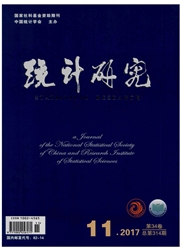
欢迎您!东篱公司
退出

 中文摘要:
中文摘要:
本文基于税负转嫁的视角,构造了要素收入有效税率的核算框架,详细界定了各种要素税负的核算范围,并实证测算了1995-2010年中国劳动与资本的实际有效税负。研究发现,与世界发达国家相比,我国的要素税负也并不算低。其中,间接税对居民消费的转嫁作用、增值税进项抵扣环节的重复计税是劳动、资本有效税率攀升的重要原因。
 英文摘要:
英文摘要:
Based on the view of indirect tax incidence,this article established an accounting framework for factor incomes' average effective tax rates(AETRs),demarcated their accounting ranges,and estimated the AETRs of labor and capital in China from 1995 to 2010.The estimates imply that factor incomes are not bearing a low tax burden even compared with the developed countries.Moreover,the tax incidence on household consumption expenditure and double taxation on VAT input tax credit play important roles in AETRs' rising.
 同期刊论文项目
同期刊论文项目
 同项目期刊论文
同项目期刊论文
 期刊信息
期刊信息
